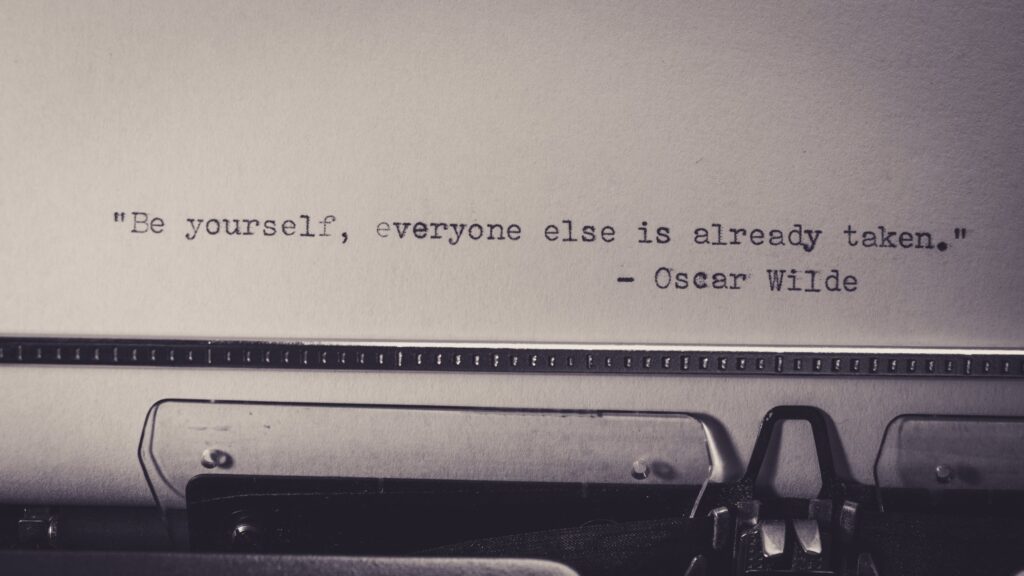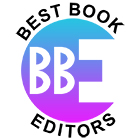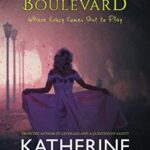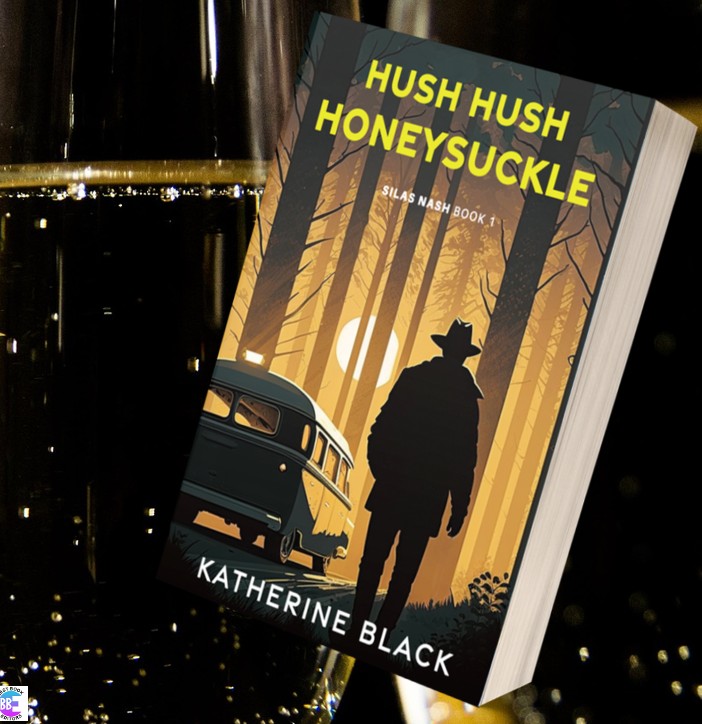People often confuse three different problems and call them writers’ block. In this article, we are looking at true writers’ block, but we’ll note the others to highlight the difference between the three.
- Writers’ Block
- Writers’ Apathy
- Writers’ Oh, crikey I’m in a mess, can’t get out of it and can’t face it.
Writers’ Apathy is likely to hit all of us at some point. It’s that day when you can’t face writing another word. It can be for a moment, where you take a break and come back to it later. It could be for a day and you return tomorrow. Or, it can plague you for a decade and the book gets shelved.
Writers’ Oh, crikey is tricky. Sometimes we have too many things going on in a book. We’ve taken too much on, have too many ideas, or there are sub-plots that all need to converge—but don’t. We’ll come up with an idea for a novel, and then partway through realise we don’t know enough about what we’re writing about to write about it. Or we just plain write ourselves into a corner and can’t find a way out.
The two sections above are two other subjects and we’ll tackle them individually.
Writers’ Block is when an author can’t come up with any ideas to write, or they have a creative shutdown. It has nothing to do with not having the time, lack of commitment or even lack of skills. It’s when the brain refuses to give up something new to write. Writers’ block is not a defined measure of time, it can last an hour, a day, or, if we leave it to rot, it can go on for a lifetime. To avoid it taking hold, there are things you can to do overcome writers’ block.
 Don’t panic: Overcoming Writers’ Block
Don’t panic: Overcoming Writers’ Block
The more you try to force the writing process, the less success you will have. Writers’ block is a stubborn head-mate and won’t be evicted willingly.
Set yourself a manageable daily word count and stick to it. That’s all well and good—great advice—but what are you supposed to write when the vessel is empty?
Here we split into two sections.
- Part-work
- Blank page
Writers’ block in a part-worked piece is both easier and harder to overcome than not having written anything. It’s easier because you’ve already done a portion of it. You have outlined your characters and plot and are underway. It’s harder because you are limited in your inspiration sources. Halfway through a book, you can’t take a random idea from a news report, or from going for a walk and seeing what sparks your brain into life. You need to come up with something within the confines of your synopsis.
Looking at a blank page is both easier and harder than continuing a part-worked piece. You aren’t limited to writing to order and are free to go wherever your mind takes you. However, you don’t have your characters set up and a ready-written section to guide you.
Part-Work
Let’s look at a part-work. You are five chapters into your latest book and you’ve run aground. The first five chapters are complete, but you have no idea where to go with the story. You may have already left it for some time. That’s the worst thing you can do because the book gets stagnant. Writers’ block isn’t a static size, it grows. Every day it gets bigger and harder to beat.
Rule 1: This is the only hard and fast rule and it is simply this: You are going to write today.
Idea 1. So, you are going to write today. That’s decided. Before you move from your seat, you are going to have some words in the sixth chapter of your latest book. Grab a die. Give each of your six main characters a number and roll the die. It lands on three. Number three is Dave. So we are going to write about Dave. Examine how you feel about that. Are you happy with the choice made for you? If not, which character would you prefer to begin your next chapter with? Listen to your instinct. Go with it. We’ve swapped to Lucy, that’s fine. Are you kicking off with dialogue or narrative? Use the die again if you need to. Dialogue. Lucy is going to open the chapter by saying something. What is she going to say? Write the first sentence that comes into your head. Trust your instinct. It doesn’t matter what that sentence is. It can be gibberish—just write it.
You decided not to write dialogue, so we’re opening with a narrative. Choose either an action or description, use the die if need be.
 Action: We’re focussing on Lucy.
Action: We’re focussing on Lucy.
What is she doing? Lucy is digging a hole. (embellish)
Is she holding something? She has blisters across the padded flesh of her hand where the shovel has dug into her skin. (embellish)
Where is she? She is in a forest. It’s dark and she’s so frightened that her vision is blurred from her raised blood pressure. All she can hear is her rapid breathing. The light from the full moon is… (embellish)
Is she alone? She’s alone. She has never felt such a depth of loneliness or sadness like this. (embellish. She’s lonely because she’s alone, but why is she sad? That came out of nowhere.)
Who is with her? She hears the distinctive noise of a branch snapping in the thick undergrowth behind her. Is it a person? An animal? ‘Who’s there?’ (embellish)
Oh, look. You’ve just written five paragraphs.
Description: We are focussing on Lucy. She’s in a forest at night. Write what she’s wearing, feeling, seeing, doing. Describe the forest at night in detail. Think about the forest sounds at night. Describe it. Think about her five senses. Describe them.
You’ve just written seven paragraphs.
What happens next? Keep writing.
And the point is, it doesn’t matter if what you’ve written is rubbish. You can change it later. You can work on what you have, or, when you’ve written more, you can scrap anything you aren’t happy with. The point is you’ve written today. Objective achieved.
Idea 2. Chart or plot your book. This can be difficult if you aren’t used to doing it. Start with chapter one, because you’ve already written the first five chapters. Use an online index card program (Trello is a great program for this, but there are alternatives) or chart longhand. What you are going to do is write a timeline. Chapter One. How many characters are in the chapter? What happens? Make sharp, single sentence statements. When you get to chapter six, use the methods above to chart rather than writing in full paragraphs. Some people find it easier. Who is in chapter six? What happens? Keep going.
Idea 3. Go back to the beginning of your book and give it a thorough edit. I don’t normally advise doing any editing at all until the first draft is finished. The exception to this is when you’re blocked. Make sure that when you get to the last written chapter you have plenty of time. You want to edit that chapter in one hit if you can—and then, while the momentum is at the max, run straight into chapter six. Don’t stop. Don’t think. Just write. Write the first thing that comes to mind. Trust your brain. It knows what it’s doing—even if you don’t.
Blank Page
Idea 1. You want to write but you can’t think of anything. My favourite method of overcoming writers’ block, ever, is something that I call The Title Game. I used to teach a creative writing course, and this is one of the tools I used. Ideally, it works best with at least two people. You can do it alone, but it works better with the encouragement of others. There is no limit to the number of people that can play.
Everybody creates a title. Start simple and generic. It can be absolutely anything. A song lyric, the last thing you ate, the first object you see when you turn your head, what you did at three o’clock that afternoon. It can be a single word or a phrase. The titles go in a hat and one is picked at random. Set a timeframe. I always used a week. Players then have a week to write something inspired by that week’s title. It can be poetry, blog, short story, essay or a travelogue, anything as long as you get those words down. Most people write either poetry or short stories. As the weeks pass, the titles should be more challenging, maybe add an object or two that have to feature in the story. Look at your best pieces and soon you will find some that can be expanded and are too good to waste on a short story. Before you know it, you will have something that can grow into a novel-length piece.
Idea 2. To get you used to writing (again) and to improve your basic writing skills, write a diary. Write about your day in detail. Use description. Recount conversations. And think about making it entertaining for somebody else to read.
Idea 3. Use the same tools that we introduced in the part-work. Pick a person. Is it male or female? How old are they? Flesh them out. Write everything you know about them. Give them an action, and consequences to that action. Introduce a second character and do the same. Make them intermingle. Another way to get your initial frame for a character is to cut interesting people out of magazines and tell their story.
For both types of writers’ block, eavesdrop on people at bus stops or in cafés. Take them home with you. Or, just a part of them, an expression, a phrase, a mannerism. Write their story.
You can’t overcome your block by wallowing in self-pity. And, the worst thing you can do is delay it or make excuses. You don’t get over it by watching TV. Write one sentence. The thought of writing again can be hugely debilitating, so don’t aim for more than that one sentence if that’s all your mind can cope with.
You’ve written the first sentence. You’ve done it, you have written. How do you feel? Do you want to stop? Then stop, if you must, but come back at the same time tomorrow and write the next one.
You feel okay; you want to carry on? Great, use the tools above to get those first paragraphs down and your mind will click in and take you to the next idea. If you hit another wall, go back to the tools and use them again. Before you know it, your block is a distant memory and you are writing again. Stick to your daily word count and soon you will have written and finished your book.
Writing isn’t easy. It can be mentally draining. So, you find ways to avoid writing when it gets hard. What we call writers’ block covers something deeper. Identify it, and you can overcome it and start writing again.
 A classic case of this is a story that highlights how your mind can play with you. I lost my mother-in-law to cancer. She had MS, and that masked the return of her cancer. I didn’t see it had come back because I was too wrapped up in writing my novel—in truth, maybe there were no indicators to see. After her death, I blamed my novel and shelved it. Every time I thought about picking it up, I thought about Marion and couldn’t. I used the excuse that I was grieving. Two year’s later, I realised the real reason that I couldn’t finish my book. It dawned on me that Marion’s death coincided with a very tricky part of the story. I’d written myself into a hole and it hurt my brain to think about how I was going to get out of it. It was a lightbulb moment. My writers’ block (writers’ apathy) had nothing to do with grief, at all. I wasn’t grieving—I was just bloody lazy. The gremlins got into my head and convinced me that it was the book’s fault that Marion had died and that I was in deep grief because of it. It was rubbish. It was two years’ since the last time I wrote any of that particular book. I knew I was at a tricky part and it was going to take work and possibly some rewriting to sort it out—and I couldn’t be bothered doing it. So, my brain created a very convenient backstory to get me out of it.
A classic case of this is a story that highlights how your mind can play with you. I lost my mother-in-law to cancer. She had MS, and that masked the return of her cancer. I didn’t see it had come back because I was too wrapped up in writing my novel—in truth, maybe there were no indicators to see. After her death, I blamed my novel and shelved it. Every time I thought about picking it up, I thought about Marion and couldn’t. I used the excuse that I was grieving. Two year’s later, I realised the real reason that I couldn’t finish my book. It dawned on me that Marion’s death coincided with a very tricky part of the story. I’d written myself into a hole and it hurt my brain to think about how I was going to get out of it. It was a lightbulb moment. My writers’ block (writers’ apathy) had nothing to do with grief, at all. I wasn’t grieving—I was just bloody lazy. The gremlins got into my head and convinced me that it was the book’s fault that Marion had died and that I was in deep grief because of it. It was rubbish. It was two years’ since the last time I wrote any of that particular book. I knew I was at a tricky part and it was going to take work and possibly some rewriting to sort it out—and I couldn’t be bothered doing it. So, my brain created a very convenient backstory to get me out of it.
Sometimes we get blocked as a result of the pressure we put on ourselves to deliver. If you are stressed and under pressure, writing is more difficult. Take a step back, breathe and try again. Find that discipline and don’t give in. The longer you are blocked, the harder it is to overcome.
This tool helps to cure writers’ block, but it can be a double-edged sword because it can cause terrible insomnia. Try thinking about your book when you go to bed. The mind is relaxed in the minutes before sleep and more receptive to letting the subconscious come to the fore and generate new ideas. If you’re lucky enough to get excited about your writing and have that lightbulb moment when you have to get up and write, give in to it. Even if you have to be up early for work, do it. Get up and write. On the other hand, if you don’t manage to plot the next 36 chapters in those few minutes before sleep, don’t worry. Think about your book and let your mind drift. When you wake up, go straight to your workstation before your sleep state leaves you. Write anything that is in your head and you may find you drift naturally back into the flow of writing. You might look at scenes from a new perspective, characters can speak differently, and the story can take you in a new direction that you hadn’t thought of before.
The writers’ block gremlins will try everything to beat you. Most writers have experienced being blocked and at different stages of the writing process. Write one sentence. Turn it into one paragraph. Complete one chapter. Turn it into a book. Write one word at a time—but write them.
Website
https://www.bestbookeditors.com/
https://www.bestbookeditors.com/latest-news/
https://www.bestbookeditors.com/books-by-katherine-black/
https://www.bestbookeditors.com/what-you-get-for-your-money/
https://www.bestbookeditors.com/book-formatting-and-typeset/
https://www.bestbookeditors.com/book-cover-design/
https://www.bestbookeditors.com/illustrations/
https://www.bestbookeditors.com/marketing-and-promotion/
https://www.bestbookeditors.com/author-publisher-logo-design/
https://www.bestbookeditors.com/book-trailers-promo-videos/
https://www.bestbookeditors.com/author-interviews/
https://www.bestbookeditors.com/shop/
https://www.bestbookeditors.com/request-a-quote/
Facebook page
https://www.facebook.com/Best-Book-Editors-102025145430197/
Facebook Group
https://www.facebook.com/groups/625104781821119/?notif_id=1635265103733738¬if_t=groups_member_joined&ref=notif










